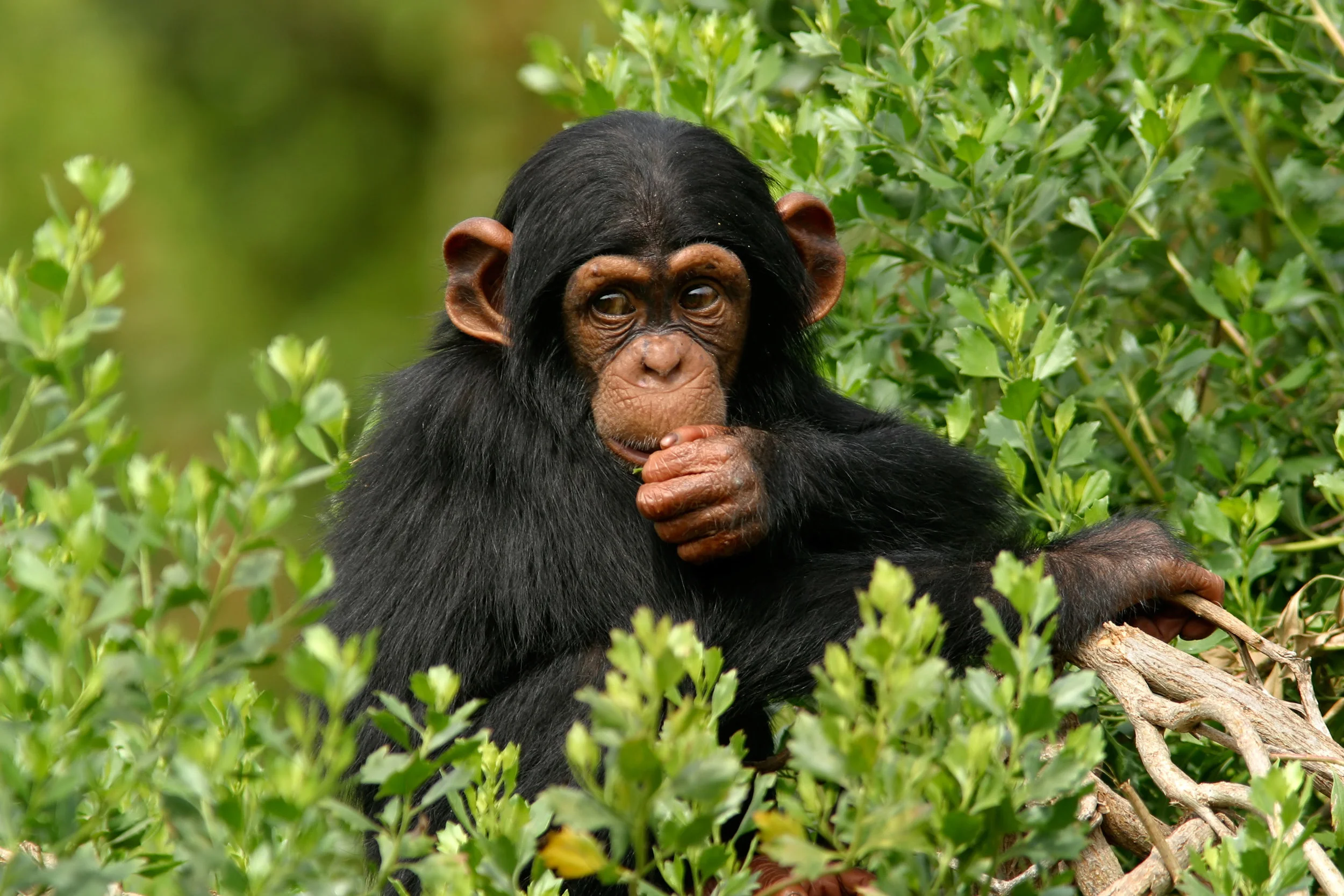Chimpanzee
"Chimpanzee" by Charity Oetgen (watercolor)
Your purchase is helping Expedition Art and Saving Species purchase land in Sumatra! Learn more about the project.
Habitat
Chimpanzees can be found in 21 African countries; the largest populations are in Gabon, Cameroon and the Democratic Republic of Congo. Chimps prefer dense tropical rainforests, but can also be found in secondary-growth forests, woodlands, bamboo forests, swamps, and even the open savanna.
Family Life
Chimps live in remarkably advanced, stable communities which range in size from 15 to 150 members. Male chimpanzees stay in the same group for their entire life. Hierarchies are formed by the adult males of the community, led by one alpha male. No females are dominant. Adolescent females may move freely between communities, although territory is strictly patrolled and conflicts can occur between neighbors.
Lifespan
The average lifespan of a chimpanzee is 40 to 60 years. Some recorded chimpanzees in captivity have lived beyond the age of 70.
Hunting Habits/Diet
Chimpanzees are omnivorous. They eat a wide variety of foods, most frequently fruits but also nuts, seeds and insects. Chimps will occasionally eat soil for the minerals that it supplements to their diet. They are active throughout the day but have what would be considered two primary “meal times”, once in the morning and once in the evening. Chimps love meat and groups will cooperate to hunt and kill monkeys.
Population
An estimated 100,000 to 200,000 chimpanzees remain in the wild.
Fun Fact
The chimpanzee is one of our closest living relatives and is estimated to share 98 percent of our genes. There are four distinct chimpanzee subspecies. They move mostly on the ground, walking on their knuckles. Body language and vocalizations are often used for communication, as are auditory and chemical cues.
Why are they Endangered?
The different subspecies of chimpanzees are subject to the same threats, though depending on their location, some are greater than others. Habitat loss from mining, forestry and agriculture is particularly problematic in western and central Africa. This results in highly fragmented populations of chimpanzees. Poaching, the illegal pet trade and infectious diseases are also major threats to their continued survival in the wild.
Status
Endangered



